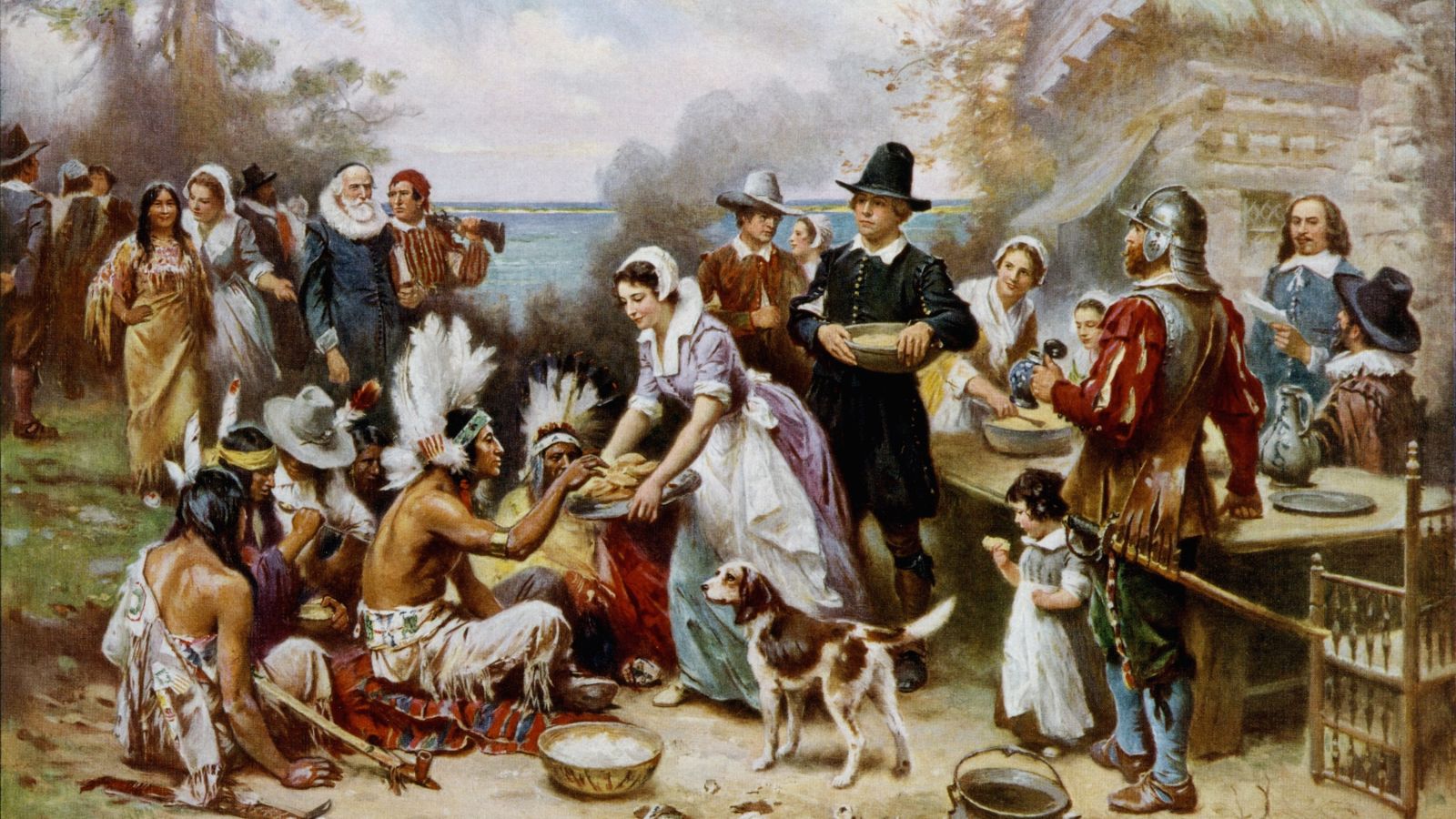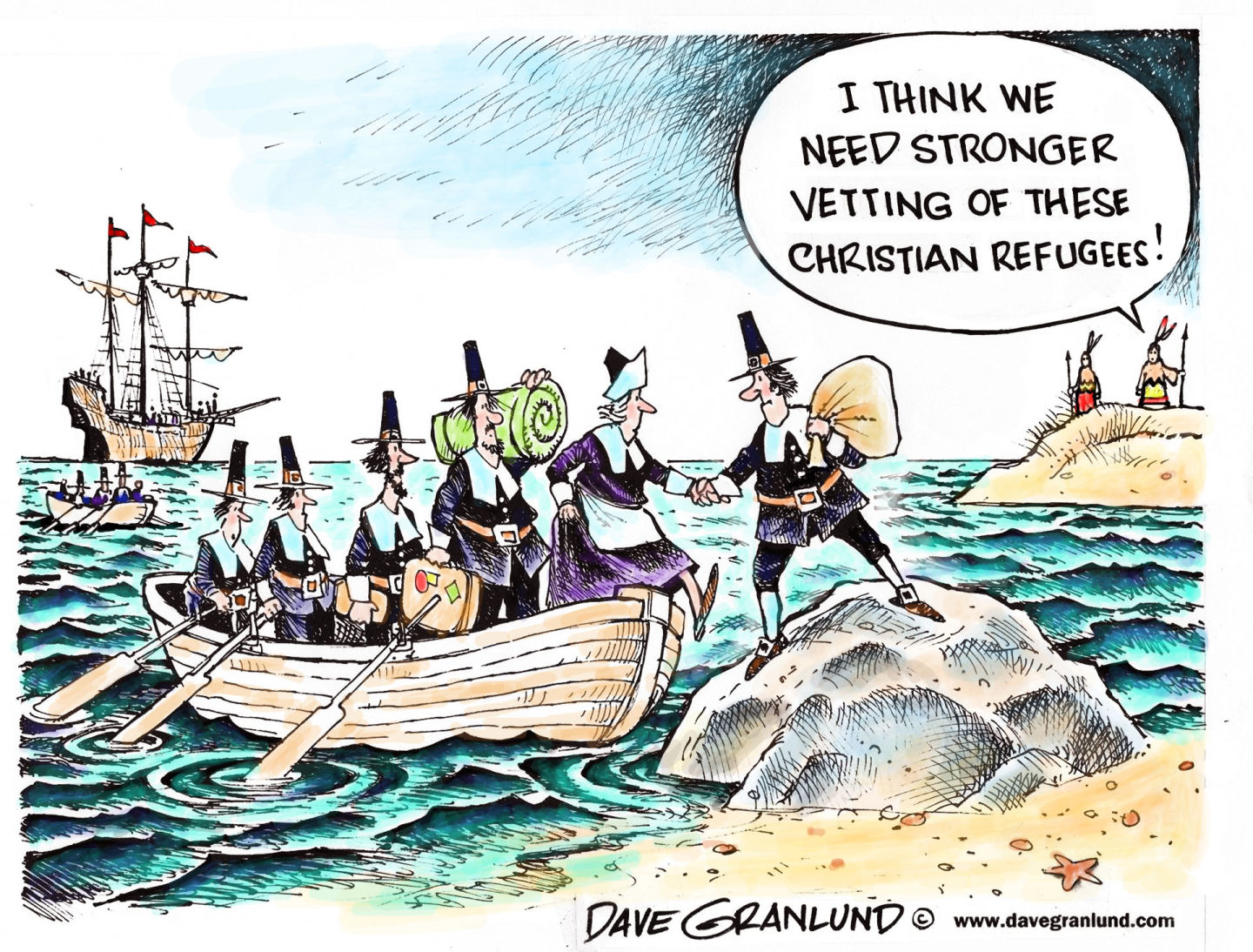Regardless of where you stand in the politically-heated debate over how many refugees the U.S. should take in, it's worth considering the issue's relevance to Thanksgiving, a holiday rooted in the tenets of gratitude, kindness and acceptance of others.
The main protagonists of the Thanksgiving story -- the Pilgrims -- were, after all, refugees of a sort as well. While they might not have necessarily fit neatly into the United Nations' modern legal classification of a "refugee," they did sail to the New World seeking religious freedom and a refuge from persecution.
Among the roughly 100 passengers who set sail aboard the Mayflower in 1620 in search of a better life, about a third were members of the radical Puritan faction known as the English Separatist Church. The group fled religious persecution after illegally ceding from the Church of England, heading first to the Netherlands and eventually across the Atlantic to the New World.
Although aiming for an area near the Hudson River, their ship ultimately landed on the shores of Cape Cod in what is modern-day Massachusetts, where its passengers founded the Plymouth Colony. Their first winter there was a rough one: nearly half the colony died from starvation and inadequate shelter.
But, as the story goes, the group acquired crucial agricultural advice and survival skills from the area's native inhabitants, and by the fall of 1621, its members had managed to scrape together enough food to at least marginally sustain themselves. The 53 remaining members of the colony famously celebrated a harvest feast with members of the Pokanoket tribe, an event that is considered the basis for today's Thanksgiving holiday.

Edward Winslow, one of the colony's leaders, described the event: "Our harvest being gotten in, our governor sent four men on fowling, that so we might after a special manner rejoice together after we had gathered the fruit of our labors… many of the Indians coming amongst us, and among the rest their greatest king Massasoit, with some ninety men, whom for three days we entertained and feasted. And although it be not always so plentiful as it was at this time with us, yet by the goodness of God, we are so far from want that we often wish you partakers of our plenty.”
